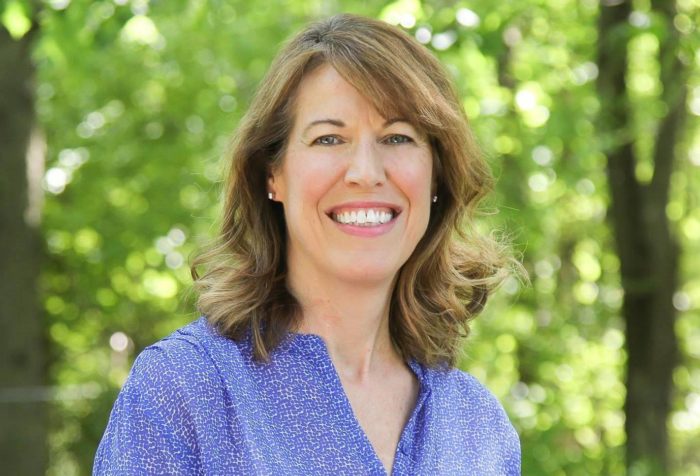Ira Lacher weighs in on the results in Iowa’s third Congressional district. -promoted by desmoinesdem
“Don’t give yourself any kine horas.”
My Yiddish-speaking aunt would admonish me thusly every time I told her of my latest accomplishment. The phrase, loosely translated as Han Solo’s “Don’t get cocky, kid,” was the eleventh commandment in traditional Jewish homes. “Don’t get too full of yourself, because the evil eye is always there to put a curse on you.”
So forgive me if I throw cold water on Cindy Axne’s victory over David Young in the just-concluded midterm election. Looking at the election map, there’s every indication that she — along with others who won overwhelmingly in urban and suburban areas but nowhere else — could be a one-term congresswoman. Unless the Democrats get their act together.
Axne’s 56 percent tally in Polk County, 45 percent in Dallas County and 43 percent in Warren County were barely enough to overcome her trouncing in every other IA-03 county except Pottawattamie, which is basically an Omaha suburb. (She lost there too.)
Those results were mirrored throughout America: Democrats won overwhelmingly in cities and suburbs; Republicans in rural areas. It accentuated a trend that has been burgeoning for some time, and it’s largely because Democrats have forsaken the concerns of people living there.
Democrats once were the party that brought electrification to rural areas, and a free college education to World War II veterans. But through intent or misadventure, they have also embarked on policies that have solidified Wall Street over Main Street. As Democrats embraced global capitalism, the multinational corporations did what capitalists do: gobble up small businesses and the communities that depend on them.
Beth Vonnahme, an associate professor of political science at the University of Missouri, Kansas City, told NPR: “[I]t certainly alters how you feel about where you live if every time you go downtown, the downtown doesn’t exist anymore and the hospital that used to serve you no longer exists. That’s going to change you, and it’s going to change the way you feel about urban areas, as well.”
Embracing society’s many cultural changes, disturbing to many in those homogenous small towns, further alienated their residents from the party of Roosevelt.
Writing in The New Republic in March, David Dayen posited that Republicans have seized on rural issues affecting small businesses and farms. When President Trump reversed an Obama policy that allowed family farmers to sue big ag for predatory practices, Iowa’s Chuck Grassley loudly dissented. Legislators in blood-red Arkansas have allowed insurance regulators more oversight over big pharma, helping small pharmacists victimized by price gouging.
Democrats would agree with those conservatives, but, Dayen argued, too many just don’t care.
The problem is that not enough of the Democratic leadership even thinks about these issues. […] Many opportunities exist for twenty-first-century versions of rural assistance, from clean energy build-out to universal broadband access. But the party shifted its attention to big money and big cities, and Democrats became little more than a rural punch line for the likes of Rush Limbaugh.
It’s vital for Democrats to combat that rampant demonization.
Dayen advised Democrats to “pick fights with power.” But what’s needed first is a more fundamental approach. Not too long ago, a United Airlines commercial depicted a business owner handing out plane tickets to his sales force so they could visit face-to-face with disgruntled customers. Cindy Axne and other Democrats who just won seats in “doughnut hole” rural areas need to get out to those constituents and listen. Then, when they get to Washington, they need to act on what they have learned.
If you’re one of those rural voters, or know someone who is, what would you tell your new member of Congress?
Editor’s note: In an interview broadcast on WHO-TV on November 11, Axne told Dave Price that she has committed to visiting all sixteen counties in IA-03 every month, which was Young’s longstanding practice.


1 Comment
a few thoughts
The path to winning IA-03 has always been “run up the score in Polk County and don’t lose too badly everywhere else.” Cindy Axne came out of Polk County with more than a 30,000 vote margin and kept it close enough everywhere else to hang on. Remember, more than half the registered voters in IA-03 live in Polk.
I couldn’t agree more that Axne needs to get out to rural areas and listen to constituents. After watching her work harder than any Congressional candidate I can remember, I have no doubt she will spend lots of time in all parts of the district.
Clearly IA-03 will be a top GOP target in 2020. But it’s way too early to predict how things will change in the district. For all we know, suburban areas will continue to trend toward Democrats with Trump at the top of the ballot. That could help Axne more than realignment in rural areas hurts her.
desmoinesdem Sat 10 Nov 9:36 PM
Comments are closed.